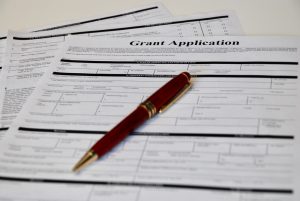A Guide to Charity VAT
Charity VAT can appear complicated. Not only do charities have to apply the normal VAT rules that apply to all businesses but they also have to answer questions most business never have to think about. For example, a normal business doesn’t have to consider if it is in business for VAT whereas this is often one of the biggest VAT issues for any charity.
This guide will help you if you are looking to understand and get advice on some of the more common charity VAT issues.
If you have any questions or need charity VAT advice click here to get in touch or give me a call. I produce an occasional free newsletter on charity VAT matters. If you would like to subscribe then subscribe here
Is a Charity in Business for VAT Purposes
The entire VAT system is based upon the concept of ‘Business’. You can only charge and recover VAT on a business activity. Commercial businesses, even loss-making ones are normally clearly in business. But it is common for a charity to do some things for free that are seen as non-business. This is sometimes, although incorrectly, described as making non-business supplies.
For a concept so fundamental to the operation of VAT it is perhaps surprising that the meaning of business is still the subject of argument and appeals. The correct approach is to look objectively at what a charity does. If it is providing goods or services in return for something (usually money) then it is normally seen as being in business. This will generally be true regardless of whether it makes a profit.
VAT Treatment of Charity Income
| Donations | No VAT | Outside the Scope |
| Sponsorship | Depends | Outside the Scope or Taxable (see below() |
| Fundraising Event Charges | No VAT | Exempt Under Fundraising Exemption |
| Fundraising Event Donations | No VAT | Outside the Scope |
| Sales of donated goods eg charity shop | No VAT | Zero Rated |
| Sales of Purchased Merchandise | Depends | Taxable at the standard rate unless zero-rated under normal Vat rules. eg sale of books or food |
| Sales of donated goods under a gift aid scheme | Outside the scope | Sold on behalf of a donor who donates the proceeds. Make sure you charge a commission |
| Catering Sales | Standard Rated | |
| Grants | Outside the Scope | Be careful as the description grant or contract in an agreement is not decisive.(See below) |
| Charges for Welfare Services | Often No VAT | Often Exempt |
| Charges for Other Services | Depends | Take on normal VAT liability |
The Treatment of Grants and Contracts
Very often whether a charity undertakes its business activity will depend upon how public funding is treated for VAT. Is the money a grant outside the scope of the VAT system or payment for a contracted supply?
If the money is an outside the scope grant then if it is the only funding the activity will generally be non-business.
 It is sometimes quite difficult to decide on whether public funding is a grant or outside the scope. HMRC has improved their guidance in this area in recent years and has provided examples of when they believe money is an outside the scope grant or alternatively a payment. But the decision is often a finely balanced one. The actual terms used in the funding agreement are not what determines the VAT treatment. There have been plenty of occasions when agreements have used the term grant and the income has been found to be a payment for a service.
It is sometimes quite difficult to decide on whether public funding is a grant or outside the scope. HMRC has improved their guidance in this area in recent years and has provided examples of when they believe money is an outside the scope grant or alternatively a payment. But the decision is often a finely balanced one. The actual terms used in the funding agreement are not what determines the VAT treatment. There have been plenty of occasions when agreements have used the term grant and the income has been found to be a payment for a service.
There have been developments in this area which might be said to confuse matters a bit more. In the Wakefield case, a distraction was drawn between consideration and remuneration. This means you can in certain situations make what is accepted as a charge but still not have a business activity for VAT. Generally, HMRC takes the view that if a charity makes supplies it is in business, but this can be challenged if the facts are right.
Recovery for Grant-Funded Activities
If an activity is wholly funded by income that is outside the scope of VAT such as grants or donations, it will be a non-business activity. VAT is not charged but neither can it be recovered on costs incurred.
When an activity is partly funded by grants and partly by admission charges or other fees sometimes HMRC attempt to apply a non-business apportionment. This is often incorrect and there have been a number of cases that demonstrate that a subsidised activity can still be a wholly business activity.
Donations and VAT Tr eatment of Sponsorship
eatment of Sponsorship
Where a person or business gives money to a charity without expecting anything in return then the money is free of VAT – it is outside the scope. But when a benefit of some type is given things can get more complex. HMRC accept that if donors receive small low-value tokens such as a badge, this will not cause a problem. The difficulty normally comes with sponsorship.
If a local supporter gives a donation and demands no acknowledgement then the money they give is clearly not subject to VAT. The problem occurs if the donor insists on recognition. Here it is often arguable if VAT is chargeable. HMRC will generally not see a grant-making organisation that insists on recognition (such as national lottery funding) as buying advertising but might well take a different view if the funder is a commercial organisation that benefits from the publicity. A good source of information about the VAT rules applying to charities is the Charity Tax Group. For information see their website
Charity Fundraising Events
This a VAT exemption for charity fundraising events. This allows charges for entry or admission to be exempt from VAT. However, it is sometimes possible to organise events in a VAT friendly way, allowing at least some VAT to be recovered on the costs of organising them.
Zero Rated Sales of Donated Goods
Charities can sell goods donated to them at the zero-rate. This allows the recovery of VAT incurred on selling such goods by charity shops. However, the zero-rate will not apply when the charity uses the retail gift aid scheme as in this case the charity is receiving a donation from the donor, on whose behalf the goods have been sold.
VAT Cultural Exemption
Charities organising cultural events may well be able to take advantage of the VAT cultural exemption. In this case, the key issue for them will be VAT recovery. For the HMRC notice then see HMRC Notice 701/47 culture
Charity VAT Recovery
Even if a charity only has business activities it may still need to restrict its VAT recovery if it makes VAT exempt supplies. This is quite common. For example, a charity may have a contract with a local authority to provide welfare services. These will be VAT exempt and no VAT can be recovered.
Charity VAT Registration
The same VAT registration rules apply to charities that apply to any business. They must register if they make taxable supplies that exceed the annual VAT registration limit. Income that is outside the scope of VAT such as grants and donations not count. Neither does income that is VAT exempt such as that obtained under a welfare contract. What will count is taxable sales such as merchandise, consultancy or publications.
In some cases, it may pay a charity to voluntarily register for VAT. This would be the case if it charges VAT to a client that can recover VAT – possibly a local authority. This allows the charity to recover any VAT it incurs on that activity.
Another situation where VAT registration will be beneficial is if the charity makes subsidised sales and will be able to recover more VAT on purchases that it needs to charge on its sales. Very often it is the trading subsidy of a charity that is obliged to be VAT registered rather than the charity. In this case, it is possible to have VAT group registration that covers both the charity and trading subsidiary.
Special Rules for Purchases
There is no general rule that stops a charity from having to pay VAT on its purchases. But there are certain special rules that apply to certain types of purchase. These include:
Charity VAT Construction Zero Rates
Some charity construction work can be purchased free of VAT. The rules here require that the building be used solely for a non-business purpose. Although HMRC allows up to 5% business use, in practice many charities find this a difficult test to meet. The construction of new village halls is also covered.
Extensions to existing buildings are not normally within the relief and VAT must be charged. The exception is if the extension creates a self-contained annex to be used for a charitable non-business purpose. The rules here are complex and it pays to take advice. HMRC do assess charities that claim the zero rate wrongly.
VAT on Charity Advertising
Charities can purchase traditional adversing free of VAT under the charity adversing zero rate. This will be true of all adverts regardless of the purpose – it applies to recruitment advertising for example. But it only applies to adverts placed in space owned by a third party, so you cannot use it to get a website redesigned. HMRC also argue that it will not apply to online adverts where specific individuals are selected such as Facebook and Google advertisements. Here HMRC believes that VAT is due. The HMRC Notice on Charity Advertising can be found here Notice 701/58 Charity Advertising
Get in touch
For a no-obligation chat about your charity VAT query, please Contact Me
